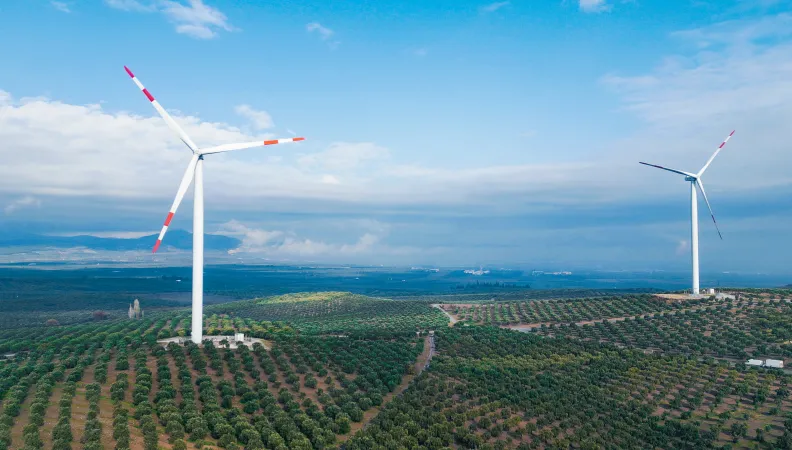Share the page
Supporting the development of onshore wind power plants in Turkey
Project


-
Signature date
-
-
Location
-
Turkey
-
Financing tool
-
Financing amount (Euro)
-
70982396,3657
-
Customer
-
Enerjisa Enerji Uretim A.S.
-
Type of customer
-
Company
-
Country of headquarters
-
Turkey
-
Project number
-
PTR108501
-
Environmental and social ranking
-
A
-
Climate co-benefits
-
Project with climate co-benefits
Proparco has allocated financing to Enerjisa Enerji Üretim A.S. to contribute to the development of nine onshore wind power plants in Turkey. This will help increase the country’s renewable energy capacity.
Client presentation
Enerjisa Üretim is a leading private power producer in Turkey, with approximately 3.8 GW of installed capacity at the end of 2024. In 2018, Enerjisa Üretim launched an ambitious strategy to increase its installed capacity to 5 GW, exclusively through extensions to its renewable energy power plants in operation and the construction of new power plants (mainly YEKA) in Turkey.
Project description
The funds will be used for the development of nine onshore wind power plants with a combined capacity of 750 MW, located in western Turkey (Aydın, Balıkesir and Çanakkale regions), as part of Turkey’s Renewable Energy Resource Area 2 Project (YEKA-2). The project will thereby contribute to Turkey’s ambitions of improving its energy mix through the addition of renewable energy capacity and achieving energy independence.
Project impact
The expected impacts of this financing are as follows:
Employment
- 2,085 direct jobs supported in the company over the next 5 years (including 2,043 direct jobs created), and 9,519 indirect jobs in the value chain
Climate
- This financing has 100% climate mitigation co-benefits
- Contribution to avoided emissions of 985,000 tCO2e per year
Access
- Support for providing new or improved access to electricity to 171,515 beneficiaries over the next 5 years
The project will thereby contribute to the achievement of the following SDGs: “Affordable and clean energy” (n° 7), “Decent work and economic growth” (n° 8), “Reduced inequalities” (n° 10) and “Climate action” (n° 13).


